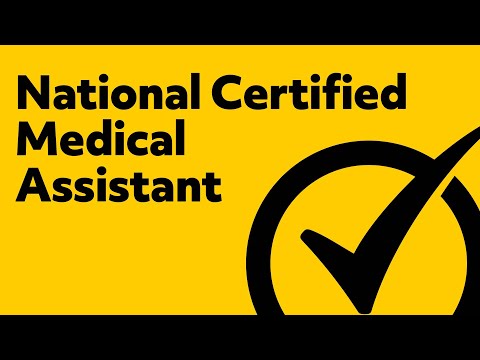Who is a Medical Assistant?
Contents
- Who is a medical assistant?
- What do medical assistants do?
- How much do medical assistants make?
- What are the education requirements for medical assistants?
- What are the job outlook and career prospects for medical assistants?
- What are the skills and qualities that medical assistants need?
- What are the working conditions for medical assistants?
- What are the challenges faced by medical assistants?
- What are the benefits of being a medical assistant?
- How can I become a medical assistant?
A medical assistant is an allied health professional who supports the work of physicians and other health professionals.
Checkout this video:
Who is a medical assistant?
Medical assistants are health care professionals who perform a variety of administrative and clinical tasks to support the work of physicians and other health care providers.
Medical assistants are vital members of the health care team. They work closely with patients, providing them with information and answering their questions. They also prepare patients for examinations, take vital signs, and collect lab specimens.
Medical assistants may also handle billing and insurance paperwork, schedule appointments, and maintain medical records
What do medical assistants do?
Medical assistants are trained to perform both administrative and clinical tasks in a medical office. They might schedule appointments, take patient histories and prepare patients for examinations. They also might perform basic laboratory tests, dispose of contaminated supplies and sterilize medical instruments. Some medical assistants take X-rays and remove sutures.
How much do medical assistants make?
Medical assistants are a vital part of the healthcare team, providing support to doctors and other medical professionals. They perform a variety of tasks, from scheduling appointments and taking patient medical histories to conducting lab tests and assisting with minor surgical procedures.
While the job outlook for medical assistants is extremely positive, with an expected 29% growth in employment between 2016 and 2026 according to the U.S. Bureau of Labor Statistics,1 salaries can vary depending on a number of factors. Here’s a look at some of the factors that can affect how much medical assistants make:
-Geographic location: Medical assistants in metropolitan areas tend to earn more than those who work in rural areas.
-Experience: Medical assistants with more experience can command higher salaries.
-Type of employer: Medical assistants who work in hospitals or other large medical facilities tend to earn more than those who work in small doctor’s offices or clinics.
-Level of education: Medical assistants who have earned certification from an accredited program generally earn more than those who have not.
What are the education requirements for medical assistants?
In order to become a medical assistant, you will need to complete a medical assistant program at a community college, trade school, or technical school. These programs typically take between one and two years to complete and include both classroom and clinical instruction.
Most states do not require medical assistants to be licensed or certified, but some employers may prefer or require certification. The American Association of Medical Assistants offers the Certified Medical Assistant (CMA) credential, which requires completion of an accredited medical assisting program and passage of an exam. Some states have their own certification programs for medical assistants.
Medical assistants who are certified might have better job prospects than those who are not. In addition, certain states recognize certification from certain organizations when granting licensure to medical assistants. For example, the American Medical Technologists offers the Certified Medical Assistant (AMT) credential, which is recognized by Iowa and West Virginia for licensure purposes.
What are the job outlook and career prospects for medical assistants?
Medical assistants are in high demand and the job outlook is very positive. With an aging population and the increasing need for healthcare services, medical assistants will be in great demand. There are many opportunities for career advancement and medical assistants can often find work in a variety of settings, including hospitals, clinics, and doctor’s offices.
What are the skills and qualities that medical assistants need?
Most medical assistants have postsecondary education such as a certificate. Others have completed a 2-year degree program. Some states have approved 1-year diploma programs in medical assisting.
Employers also value practical experience, so medical assistants may benefit from completing an internship while in school.
Most medical assistants have postsecondary education such as a certificate. Others have completed a 2-year degree program. Some states have approved 1-year diploma programs in medical assisting.
Employers also value practical experience, so medical assistants may benefit from completing an internship while in school.
Medical assistants need to be able to:
* Communicate with patients and providers
* Handle both administrative and clinical duties
* Use computers and other technology
* Manage their time wisely
What are the working conditions for medical assistants?
Medical assistants work in a variety of settings, including physician’s offices, hospitals, clinics, and other healthcare facilities. They typically work full time, although some may work part time. Many medical assistants work evenings or weekends to accommodate patients’ schedules.
Medical assistants typically have a busy schedule. They may be required to take on multiple tasks simultaneously and be able to switch gears quickly as demands change. Some medical assistants may be responsible for scheduling appointments, handling billing and insurance paperwork, preparing examination rooms, taking patients’ vital signs, and giving injections. Others may be responsible for more clerical duties, such as transcription or coding Medical records
What are the challenges faced by medical assistants?
The challenges faced by medical assistants are varied and depend on the particular job they are performing. They may be required to lift patients, handle blood and other bodily fluids, administer medications, take vital signs, or perform other tasks that require physical strength and stamina. They may also be required to work long hours, evenings, weekends, or holidays. In addition, medical assistants may be exposed to contagious diseases and viruses.
What are the benefits of being a medical assistant?
There are many benefits to being a medical assistant. Medical assistants perform a variety of administrative and clinical tasks to support the work of physicians and other health professionals. They are an important part of the healthcare team.
Medical assistants are usually very well-versed in both medical office procedures and Medical Terminology They are often able to take on more responsibility than other members of the healthcare team, such as receptionists or office managers. This can lead to faster promotions and higher salaries. In addition, medical assistants often have opportunities to cross-train in other areas of the medical office, such as billing and coding, or medical transcription
The demand for medical assistants is expected to grow much faster than average in the coming years. This is due to the increasing number of elderly patients who need care, and the growing number of outpatient procedures that are being performed. As a result, job prospects for medical assistants are expected to be very good.
How can I become a medical assistant?
There are many ways to become a medical assistant. One way is to attend a medical assistant program at a community college or technical school. Another way is to complete on-the-job training through a healthcare facility. There are also online programs that can lead to certification.






